#disruptors
Text
According to this article, they're discussing an opt-out model of harvesting data, which is definitively worse than an opt-in model (because a lot of people are not going to go through the logistical hurdles to avoid their stuff getting stolen) and very much a bandaid on a open wound.
Needless to say, everyone should be screaming about this to @staff because the more friction the better, and backing everything up if they need to shut shit down rather than have their work be "legally" stolen by a bunch of Silicon Valley vultures who are all going to lose their shirts in a couple years.
Not exactly sure what Plan B I'm going to go with yet, but needless to say my interest in getting an independently hosted wordpress.org blog (because that's distinct from wordpress.com) and/or checking out Squarespace or the like has just gone way up.
285 notes
·
View notes
Photo

Vast organisations produce a sense of impotence in the individual, leading to a decay of effort. The danger can be averted if it is realised by administrators, but it is of a kind which most administrators are constitutionally incapable of realising. Into every tidy scheme for arranging the pattern of human life it is necessary to inject a certain dose of anarchism, enough to prevent immobility leading to decay, but not enough to bring about disruption.
- Bertrand Russell, Sceptical Essays
#russell#bertrand russell#quote#disruptors#innovation#creativity#business#corporate intertia#managerial elites#risk averse management#individualism#napoleon#bonaparte
59 notes
·
View notes
Text
I was rewatching Glass Onion when i realized that in the scene where they are all sitting on the stairs Peg was the ONLY one smiling, clealy happy about Miles's downfall. Really makes sense considering that she was the only one not gaining anything from him, only saving her reputation because of the sweatshop situation.
#disruptors#glass onion knives out#miles bron#knives out spoilers#knives out 2#glass onion spoilers#glass onion#she was the most redeemable of the#alongside Whiskey#i hope she shows up in the third movie
59 notes
·
View notes
Text
In the end I am decided that the Mona Lisa was meant to be real. I just rewatched Glass Onion and picked up on something extra. In Miles’ speech about distruptors, he describes some good distruption before he breaks off into talking about himself (maybe they call you a bully, (…)maybe your partner tells you to stop), but the rest doesn’t apply to any of them. Any of them except, now Helen.
First she breaks the things that people are okay with. The glass sculptures. She is doing it and the others join in, this is acceptable to them. It’s a fun release to them, a little bit if rebellion, a little bit different. But when they are done they start being shocked that she’s still going. She starts breaking what they do t want her to - the Versace Piano I think - and by then Miles is asking her what she wants. Has she had enough.
No she hasn’t.
Then she sets the fire, and they are all trying to stop her, she gets it going with Klear and they are all against this, telling her to stop.
And then she goes after the one thing they Really don’t want her to do, the Mona Lisa.
#Someone may have already said this but I thought it up and thought it was cool#glass onion#helen brand#mona lisa#Disruptors
23 notes
·
View notes
Text

#elon musk#tesla#cybertruck#spacex#starlink#theboringcompany#innovators#disruptors#software#automotive technology#sustainable transport#sustainable energy#futuristic
1 note
·
View note
Text
Bubble nos. 5
If you could have something named after you, what would it be?
A couple of years after marriage as I settled into my new home, in the hope to replace Butch and Tara, influenced by the younger siblings dexterity with raising fish, I procured a fish tank. I started with a small rectangular tank, with a beautiful blue background. In the first round, I got a few guppies. I used to feed them fish…
View On WordPress
0 notes
Text
Dream, Defy, Thrive
“Own your destiny, or someone else will eventually take it from you with your consent.” —e.d. maramat | erwinism
What did you want to be when you grow up? Are you that person now? Did you take a risk just to be that someone?
When we were young—far younger and innocent than we are today—grown-ups often ridiculed our dreams; if not, there’s a kid who would fling words they borrowed off from an…

View On WordPress
#Artists#Barcode#Belittlement#Bought and Sold#Consent#Cookie Factory#Courage#Cruelty#Defiance#Destiny#Disruptors#Dream#Dream Again#Dream Boldly#Dreams#Erwinism#Failure#FYP#Household Name#Inspiration#Learning#Little Prince#Love#Motivation#Nameless Number#Optimism#Optimistic#Ownership#Positive#Positive Energy
0 notes
Text
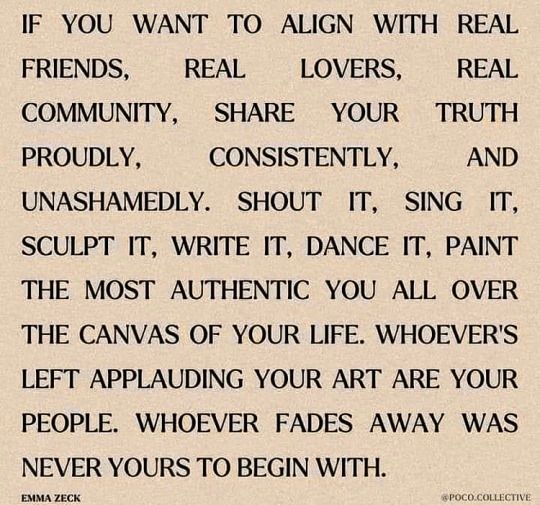
#writing#words#life#love#community#authenticity#authentic self#art#lovers#I love you#create#disruptors
0 notes
Text
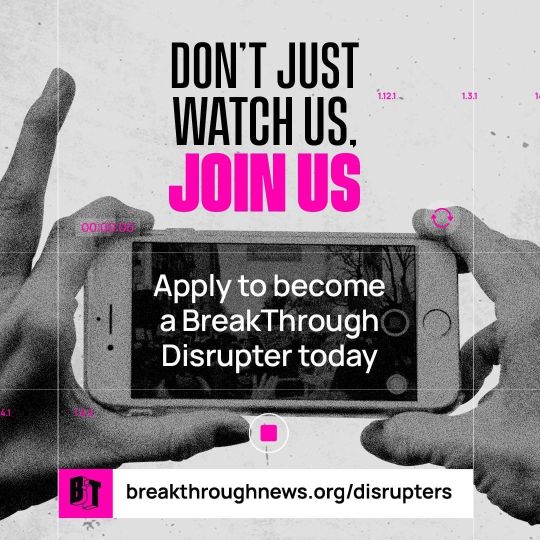
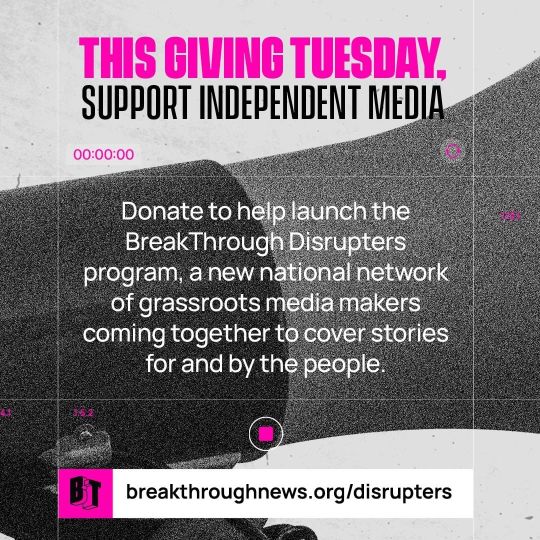
BT is excited to announce we are launching a new volunteer-based program for grassroots media makers: BreakThrough Disrupters.
If you want to see BT bring high-quality media, and media training, to working-class communities, show your support and donate!
breakthroughnews.org/disrupters/
0 notes
Note
Hey, what does disruptor mean? I saw it when looking at your answers. I’ve also seen people joke about it on twitter but I can’t find a meaning to it.
It's a term I personally loathe, but I'm willing to do some recent cultural/intellectual history to explain where it came from and what it means.
The term disruptor as it's commonly used today comes out of the business world, more specifically the high tech sector clustered in Silicon Valley. Originally coined as "disruptive innovation" by business school professor Clayton Christensen in the mid-to-late 90s, the idea was that certain new businesses (think your prototypical startup) have a greater tendency to develop innovative technologies and business models that radically destabilize established business models, markets, and large corporations - and in the process, help to speed up economic and technological progress.
While Christensen's work was actually about business models and firm-level behavior, over time this concept mutated to focus on the individual entrepeneur/inventor/founder figure of the "disruptor," as part of the lionization of people like Steve Jobs or Mark Zuckerburg or Elon Musk, or firms like Lyft, Uber, WeWork, Theranos, etc. It also mutated into a general belief that "disrupting" markets and, increasingly, social institutions is how society will and should progress.
I find these ideas repellant. First of all, when it comes to the actual business side of things, I think it mythologizes corporate executives as creative geniuses by attributing credit for innovations actually created by the people they employ. Elon Musk didn't create electric cars or reusable rockets, Steve Jobs didn't design any computers or program any OSes, but because they're considered "disruptors," we pretend that they did. This has a strong effect on things like support for taxing the rich - because there is this popular image of the "self-made billionaire" as someone who "earned" their wealth through creating "disruptive" companies or technologies, there is more resistance to taxing or regulating the mega-wealthy than would otherwise be the case.
Even more importantly, treating "disruptors" like heroes and "disruption" as a purely good thing tends to make people stop thinking about whether disruption to a given industry is actually a good thing, whether what tech/Silicon Valley/startup firms are doing is actually innovative, what the economic and social costs of the disruption are, and who pays them. Because when we look at a bunch of high-profile case studies, it often turns out to be something of a case of smoke and mirrors.
To take ridesharing as an example, Lyft and Uber and similar companies aren't actually particularly innovative. Yes, they have apps that connect riders to drivers, but that's not actually that different from the old school method of using the phone to call up a livery cab company. There's a lot of claims about how the apps improve route planning or the availability of drivers or bring down prices, but they're usually overblown: route planning software is pretty common (think Google Maps), when you actually look at how Lyft and Uber create availability, it's by flooding the market with large numbers of new drivers, and when you look at how they got away with low prices, it was usually by spending billions upon billions of venture capital money on subsidizing their rides.
Moreover, this "disruption" has a pretty nasty dark side. To start with, Lyft and Uber's business strategy is actually a classic 19th century monopoly strategy dressed up in 21st century rhetoric: the "low prices" had nothing to do with innovative practices or new technology, it was Lyft and Uber pulling the classic move of deliberately selling at a loss to grab market share from the competition, at which point they started raising their prices on consumers. Availability of drivers was accomplished by luring way too many new drivers into the labor market with false promises of making high wages in their spare time, but when the over-supply of drivers inevitably caused incomes to decline, huge numbers of rideshare drivers found themselves trapped by auto debts and exploited by the companies' taking a significant chunk of their earnings, using the threat of cutting them off from the app to cow any resistance. And above all, Lyft and Uber's "disruption" often came down to a willful refusal to abide by pre-existing regulations meant to ensure that drivers could earn a living wage, that consumers would be protected in the case of accidents or from the bad behavior of drivers, etc.
As a policy historian, however, I find the extension of "disruption" into social institutions the most troubling. Transportation, health care, education, etc. are absolutely vital for the functioning of modern society and are incredibly complex systems that require a lot of expertise and experience to understand, let alone change. Letting a bunch of billionaires impose technocratic "reforms" on them from above, simply because they say they're really smart or because they donate a bunch of money, is a really bad idea - especially because when we see what the "disruptors" actually propose and/or do, it often shows them to be very ordinary (if not actively stupid) people who don't really know what they're doing.
Elon Musk's Loop is an inherently worse idea than mass transit. His drive for self-driving cars is built on lies. Pretty much all of the Silicon Valley firms that have tried to "disrupt" in the area of transportation end up reinventing the wheel and proposing the creation of buses or trolleys or subways.
Theranos was a giant fraud that endangered the lives of thousands in pursuit of an impossible goal that, even if it ould have been achieved, wouldn't have made much of a difference in people's lives compared to other, more fruitful areas of biotech and medical research.
From Bill Gates to Mark Zuckerburg, Silicon Valley billionaires have plunged huge amounts of philanthropy dollars into all kinds of interventions in public education, from smaller classrooms to MOOCs to teacher testing to curriculum reform to charter schools. The track record of these reforms has been pretty uniformly abysmal, because it turns out that educational outcomes are shaped by pretty much every social force you can think of and educational systems are really complex and difficult to measure.
So yeah, fuck disruptors.
109 notes
·
View notes
Text

lmao this is actually on zac's imdb now
#crunchyposts#game changer#game changer spoilers#also this is how i found out zac was part of the disruptors !!! good for him im dying to watch it#wait i just realized#hes not even credited for the rest of his actual game changer appearances just this ep yusdfjhghjksdgfjksd#and the only other stuff hes credited with is d20 and older dropout shows like hardly working or paranoia#not even like. dirty laundry or make some noise lol#100#150#200#300#400#500
565 notes
·
View notes
Text
my favourite part about watching Glass Onion with my niece (6) was when ‘the disruptors’ were solving the puzzle box together and her exasperated little voice going I would just smash it only for Helen to do exactly that just moments later.
#the look of pure joy on her face#she fell asleep like 5 minutes after that#little kids are funny#knives out#knives out: glass onion#glass onion#the disruptors#beniot blanc#miles bron#helen brand#cassandra brand#andi brand
4K notes
·
View notes
Link
If you’re looking for a new bank account, then you’ll want to check out this list of the best neobanks in the world. These banks offer great features and benefits that are perfect for millennials who are looking to save money.Neobanking is having a moment. From nimble startups to established industry disruptors, everyone wants a piece of the action in digital banking.
0 notes
Text
Do people know most paper receipts are harmful to their health?
I'm going to get up on my soapbox for a minute, but do people realize how pretty much everyone is being overloaded with endocrine disruptors like BPA/BPS on a near-daily basis??
I don't think many people understand that ever since most of the world transitioned to thermal paper receipts (cheaper than ink), almost every receipt you handle from the gas station to the grocery store to the Square terminal printer at the local co-op is coated with Bisphenol-A (BPA) or its chemical cousin Bisphenol-S (BPS).
These chemicals have not only been proven to cause reproductive harm to human and animals, they've also been linked to obesity and attention disorders.
Not sure if your receipt is a thermal receipt? If you scratch it with a coin and it turns dark, it's thermal.
BPA/BPS can enter the skin to a depth such that it is no longer removable by washing hands. When taking hold of a receipt consisting of thermal printing paper for five seconds, roughly 1 μg BPA is transferred to the forefinger and the middle finger. If the skin is dry or greasy, it is about ten times more.
Think of how many receipts you handle every day. It's even worse for cashiers and tellers, who may handle hundreds in a single shift. It is also a class issue, since many people who work retail and food service are lower-income and will suffer worse health consequences over time from the near-constant exposure.
Not only that, receipts printed with thermal ink are NOT recyclable, as they pollute the rest of the paper products with the chemicals.
People don't know this and recycle them anyway, so when you buy that "green" toilet paper that says "100% recycled"? Yup, you are probably wiping your most sensitive areas with those same chemicals (for this reason, I buy bamboo or sugarcane toilet paper as a sustainable alternative to recycled paper).
This page from the Minnesota Pollution Control Agency has some good links if you want to learn more.
As consumers, we need to demand better from our businesses and from our governments. We need regulation of these chemicals yesterday.
If you are a buyer or decision-maker for a business, the link above also contains a shortlist of receipt paper manufacturers that are phenol-free.
If you work at a register, ask customers if they want a receipt. If they don't and you can end the transaction without printing one, don't print one!
As a consumer, fold receipts with the ink on the inside, since that's where the coating is. Some more good tips here.
And whatever you do, DO NOT RECYCLE THERMAL RECEIPTS
#i realized the other day that lots of ppl i talked to had no idea this was even a thing#important psa#demand more from your retailers and governments#environment#bisphenols#bpa free#bpa/bps#retail#food service#shopping#working class#capitalism#endocrine disruptors#endocrine disorders#adhd#eco lifestyle#environmental pollution#pollution#toxic chemicals#reproductive health#science#health#environmentalism#eco conscious#human health#consumer goods#consumer awareness#green living#green business#ecofriendly
343 notes
·
View notes
Text



Branson Model 450 Analog Sonifier with Converter Probe (US, 1998)
229 notes
·
View notes
Text
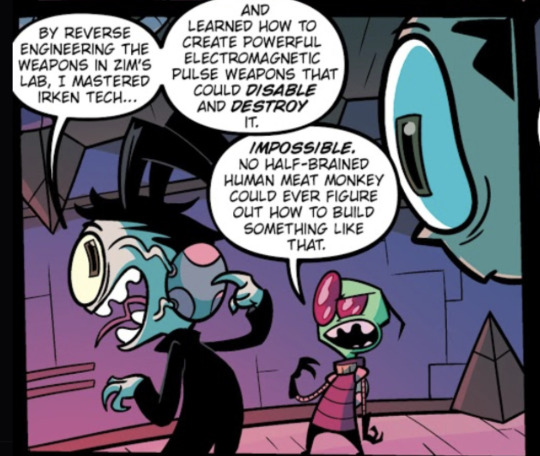
You know admittedly that’s a pretty clever idea for- w
wait
Wait wait wait
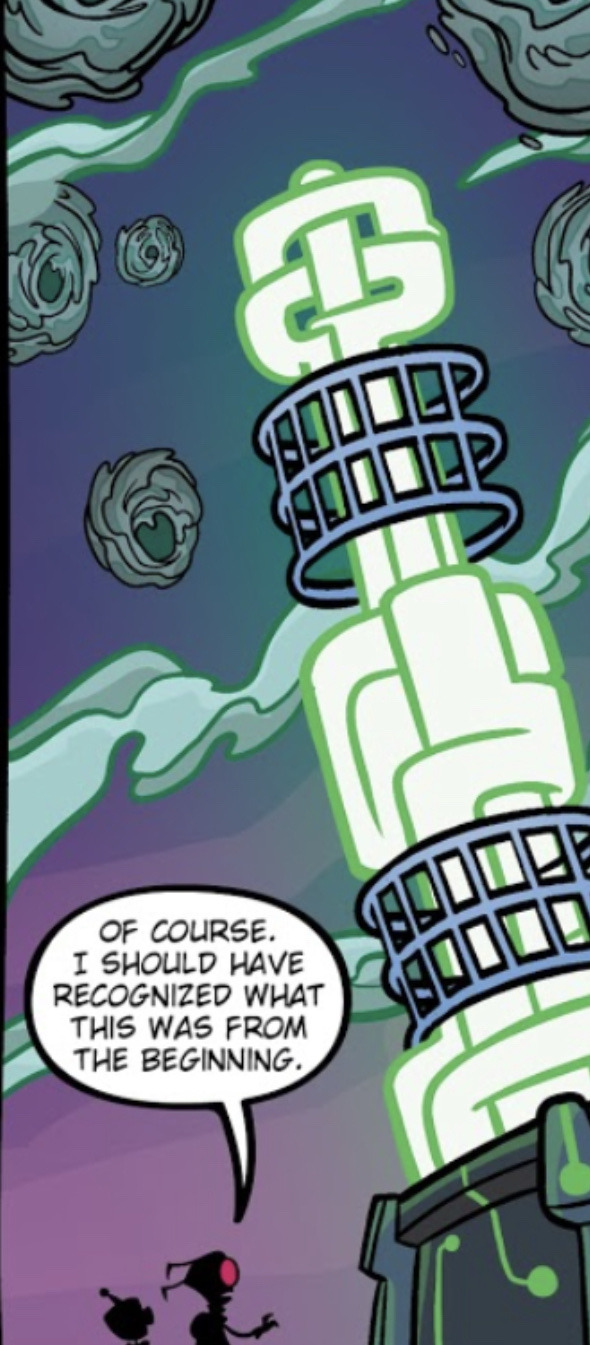
Wait hol up wait wait just

….That was your intellectual property?!? Buddy what the fuck were you planning for?

#invader zim#zimvoid#iz comic spoilers#iz comics#iz zib#UHHH ZIM??????#HELLO?#HE EVEN CALLS IT THE ‘IRKEN DISRUPTOR’??#no seriously what does this have to do with taking over the earth? What was he going to do?#don’t know how I missed this on first reading#when you realize Zib just straight up plagiarized all his shit
336 notes
·
View notes